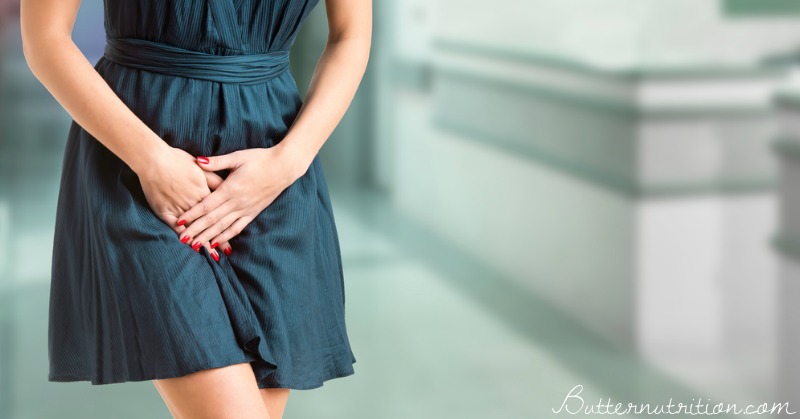
I'm surprised that in my 11 years of blogging, I haven't told you this story yet. It took me some time to come to terms with my own internalized story with 'invisible' pain, and to really own my experience instead of minimizing and pretending it didn't happen. For too long I associated pain with weakness, but now I realize how much stronger the pain has made me.
I was 21 when I first started experiencing symptoms of interstitial cystitis (IC for short) or painful bladder syndrome. I was new to chronic pain, and had no idea the long ride I was in for...
Also, it's important to note my interstitial cystitis did not occur in a vacuum, I had digestive issues too, which you can read about here (but that's a whole different story...)
What is interstitial cystitis or painful bladder syndrome?
Interstitial cystitis or painful bladder syndrome can be a very painful and chronic condition that can result in regular (often ongoing) bouts of painful bladder irritation. The irritation causes urination urgency and frequency, often severely impacting concentration, sleep, and quality of life.
By definition, "Interstitial cystitis, or bladder pain syndrome (also IC/BPS), is a chronic inflammatory condition of the submucosal and muscular layers of the bladder. The cause of IC/BPS is currently unknown and the condition is regarded as a diagnosis of exclusion. IC/BPS may be associated with urinary urgency, urinary frequency, waking at night to urinate (nocturia), and sterile urine cultures. Those with interstitial cystitis may have symptoms that overlap with other urinary bladder disorders such as: urinary tract infection (UTI), overactive bladder, urethritis, urethral syndrome, and prostatitis." [1]
IC really impacts the quality of life for the person who has it, which is hard to understand unless of course you've experienced chronic pain yourself or watched someone you know go through it. Chronic pain means you never get a break; a break from thinking about pain, a break from feeling pain, a break from trying to figure out how to manage the pain, and a break from wishing that this wasn't happening to you.
The quality of life for someone with IC can be comparable to someone with rheumatoid arthritis, chronic cancer pain, or a patient on kidney dialysis.
What causes interstitial cystitis?
While the cause of interstitial cystitis is unknown, there are several theories including:
- Defects in the epithelium (lining) of the bladder
- Bladder trauma
- Pelvic floor muscle dysfunction
- Autoimmune disorders
- Neurogenic inflammation
- Genetics
- Allergy
- Sexual abuse
- Lyme disease [2]
- B1 -Thiamine deficiency [3]
- Oxalate issues
- Gut microbiome imbalances [8]
Personally, I believe interstitial cystitis is strongly rooted in nutrition related causes: poor digestion, nutritional deficiencies, poor liver function, hormonal imbalance, inflammation, hypothyroidism, and low protein diets (vegan/vegetarian) as well as associated with a history of UTIs, antibiotics, birth control pill use, and chronic viral issues (as some studies suggest). [4]
According to Dr. Ray Peat, IC has to do with hormonal imbalance, "Interstitial cystitis involves an increased number and sensitivity of mast cells in the bladder, as a result of too much estrogen activity, or too little thyroid and progesterone."
Symptoms of Interstitial Cystitis
The symptoms of interstitial cystitis and painful bladder syndrome are pretty straightforward in that they often mimic those symptoms of a bladder infection, but without the infection:
- Bladder pain
- Pelvic pain
- Urgency to urinate
- Bladder pressure
- Bladder fullness (even when empty)
As I look back on what my own symptoms and pain felt like, I'd describe it simply like this: remember when you were a kid and you'd skin your knee real bad? Then your parents or the school nurse would wash it out with an antibacterial solution that stung like crazy?! That's what IC pain felt like to me, a constant stinging and burning feeling whenever a tiny bit of urine touched my bladder wall. This constant stinging discomfort left me constantly headed to the bathroom to relive the pain. But the problem is your body is always producing urine! It's like a slow drip of pain all day long that becomes much worse at night because that's when urine becomes more concentrated and acidic causing more irritation to the bladder wall.
My Interstitial Cystitis (IC) Story
About 17 years ago I found myself having strange symptoms after a few urinary tract infections (UTI) in a short period of time. I think it was something like two in one month, meaning two separate rounds of antibiotics within 30 days or so.
After the infections were "gone" my symptoms were not. For the next year I noticed an increasingly sensitive bladder, meaning I felt the urgency to urinate a lot more frequently during the day, and even more at night, which was a pretty foreign experience for a 21-year-old who was used to sleeping like a rock.
That started a long decade of chronic pain and poor sleep (I had other issues too, related to digestion which you can read about here). While IC is bad during the day, it's even worse at night. Eating a trigger food during the day sometime meant a sleepless night or 10+ trips to the bathroom.
The discomfort grew over time. On the worst days I'd be up all night not able to sleep because I constantly felt stinging in my bladder and that I had to pee. It made no difference if I had gone 10, 4, or even 2 minutes ago. Even the smallest amount of urine would irritate my bladder leaving me unable to fall asleep or get restful sleep, period. Occasionally I'd go into my doctor to see if I had another UTI, but they'd always come back clean, a dead giveaway of interstitial cystitis or painful bladder syndrome. A condition that according to the internet "can't be cured"...
Taking over my life
Saying that interstitial cystitis was exhausting, is an understatement. It made my quality of life very poor. I couldn't sleep most nights, and then I'd proceed to try to make it through my normal 40 hour workweek. I'd make so many trips to the bathroom I even was concerned someone would notice and be concerned I wasn't doing my job. On the worst days, I recall finding a quiet space at work to cry and wonder how I was going get through this.
Surviving nighttime was the hardest part. Several nights a week I'd end up sleeping on my living room couch because I couldn't bare keeping my boyfriend up all night as I struggled with discomfort. Luckily, he was very supportive and handled it well, much better than I could have asked for.
I'd also get stressed out when I went on trips or getaways, especially in shared sleeping situations. I was never sure how many times I was going to have to get up to use the bathroom, and I was always concerned I would wake everyone else up. Because IC is an invisible source of chronic pain, it's hard to talk about. I mean who wants to talk about invisible pelvic pain? Not me. It was easier to suffer in silence.
Western medicine's approach for addressing the chronic bladder pain and frequency caused by Interstitial Cystitis is not great. Because of all the research I'd done online, I never saw a bladder specialist (I felt like I knew all I needed to know about IC). When I read about the invasive testing (cystoscopy, bladder biopsy), therapies like bladder instillations, medications with crazy side effects, and in some severe cases - surgical removal of the bladder, it really freaked me out. None of that sounded remotely promising. I've always had a bit of a sensitive body, and I wasn't willing to try things that might just make things worse.
I put up with the pain and discomfort...
My Ah-ha Moment
About 3-6 months into this bad bladder dream, I started to connect the dots between the foods I ate and the frequency in which I had to go.
At one point I noticed any time I ate bread or certain grains, my pain and frequency was significantly worse. Eliminating grains gave me about 15% improvement. I could go longer periods of time during the day without a trip to the bathroom, and my flares at night decreased slightly in severity (meaning I was only waking up about 4-5 times a night and not the dozen times I was used to). It was a promising and encouraging start to getting better...
I kept a bladder journal on and off for several years, always writing down what I ate when I had a good or bad day, well documenting my flares and creating my own version of the IC diet. Slowly I learned my trigger foods, some of the worst being...
- bread/grains
- spices of any kind (the stronger the spice the more pain, pungent spices were the worst)
- dairy products (particularly lactic acid containing foods like yogurt and cheese were the worst for me)
- high potassium foods (most fruits)
- acidic foods and citrus fruits: orange juice, lemon/lime, salad dressings, wine, kombucha, vinegar, etc.
- chocolate
- coffee and caffeine
- common food additives found in deli meats + salami (I was always checking the labels for anything that looked like it didn't belong in my food)
- supplements in general (most of them, especially anything "detoxifying"), less supplementation was always better for me
- carbonated beverages
- high oxalate foods
- high histamine foods and histamine-producing probiotic supplements (especially bacillus coagulans and bacillus licheniformis probiotic strains)
While that doesn't look like a long list, it makes for a highly restricted diet. Everything I craved or wanted to eat would mean a sleepless night. And whenever I was away from home and my food choices were more limited, I often felt the worst.
My Recovery
As time went on, the more I tuned in to my body the better I felt, but my diet was still pretty limited. At one time I recall my "safe" foods being butter, olive oil, meat (eggs, chicken, beef, turkey, fish), honey, homemade baked goods (like these) and some vegetables. But it was incredibly hard to maintain. I did the best I could and over time it got better, but this took years. Not weeks or months...
By about 3-4 years in I considered myself about 60% better. Sure, I still had rough nights when I ate something irritating and barely slept at all, but it was no longer controlling my life. I still however, had to be careful about what I ate if I wanted to sleep well, and I also still would wake up at least 1-2x a night to pee regardless of what I ate.
At about year 5, I discovered over-the-counter Benadryl which acts as an antihistamine (thanks Ray Peat)l and it's ability to calm the mast cells in the bladder. I used very small dosages as needed on the bad nights to help me sleep. Benadryl however, is not without risk, so I used it sparingly (often only ¼ or ½ a pill before bed just to take the edge off). It felt like a miracle to have something that helped, but I of course knew it was just a tool or band-aid to use while I strengthened my body and bladder naturally.
In year 6-7 of my battle with interstitial cystitis, I felt like my bladder was at about 75-80% normal, to a point where I didn't even think about it too much anymore. I still woke up at least once every night to pee though. Something I hated so much.
In year 8 of my recovery, I discovered hair analysis to target my mineral deficiencies and nutrient excess as well and also explored the impact of chronic viral issues on my body. After a few months on my supplements I started sleeping through the night regularly for the first time in almost a decade. I was blown away and this is actually what inspired me to add hair analysis to my own nutrition practice. The food and supplemental changes I made had a huge impact and I now consider myself about 95-99% recovered.
In hindsight, I think interstitial cystitis is very manageable and treatable with a special diet (but then again I can only speak from my own severity of IC, I'm sure others have it worse off than me). I found a way to manage my symptoms pretty early on, which probably prevented more damage from being done to my bladder wall. The recovery though is not easy, and often involved a very restricted dietary regimen to get the pain and frequency under control. But I know it can be done, because I did it myself...
What helped me the most:
- Improving digestion and balancing your microbiome. I'm convinced that gut health and IC go hand in hand. Recent research supports this, specifically that certain beneficial gut bacteria (E. sinensis, C. aerofaciens, F. prausnitzii, O. splanchnicus, and L. longoviformis ) that are commonly found low in people with IC. You can easily identify this with gut testing. [8]
Interstitial Cystitis and low F. prausnitzii shown on a GI Map Stool Test - Eating well and eating regularly. I ate the most nutrient dense diet I could eat given my own pain triggers. As a nutritional therapist, this was extremely hard because some of the healthiest foods I wanted to eat were also the most irritating to my bladder. Sometimes I had to eat unhealthy foods just to get enough calories and keep my body going.
- Avoiding extreme diets - including low carb or vegan ways of eating.
- Knowing your body and your triggers. While you can get ideas on what worked for someone else, you must keep a food journal and do research on what flares you. It will differ from everyone else. There is no "one-size-fits-all" Interstitial Cystitis diet.
- D'mannose was helpful to soothe my bladder and help prevent UTI's from happening in the first place.
- In the last few years I used small amounts of Benadryl to help me get some sleep on the worst nights.
- Targeting any nutrient deficiencies and excess with the help of hair analysis (something that helped me so much, I got trained in it myself!) I wish I had done this way earlier on in my recovery, I think it would have made a big difference.
- Small amounts of calcium citrate to help bind oxalates in the gut that irritate the bladder.
- Addressing any underlying viral issues (more on the testing for that here, and my favorite supplements for viral issues here)
- These test strips helped me make sure that slight changes in my pain were still the IC and not a UTI. This saved me from going to the doctor all the time...
- A low oxalate diet (avoiding high oxalate foods like leafy greens, beets, chocolate, strawberries and more).
- You can test for oxalates using an Organic Acid test, and try using a small amount of calcium citrate to bind to oxalates at meals and before bed.
- Reducing or avoiding foods high in plant toxins like nightshades - tomato, peppers, and spicy foods.
- Understanding the role of mast cell activation and histamine in interstitial cystitis. I suspect this largely originates from chronic infections of histamine-producing bacteria.
While the pain was bad, it gave me crazy motivation to get better. The small gains I saw over months and years, fueled my passion for nutrition and natural healing. All the pain I experienced in my twenties is one of the reasons this blog exists in the first place - I survived and lived to tell about it! Now I can eat anything I want without any interstitial cystitis restrictions (I avoid certain foods because of food sensitivities that are not bladder or IC related). If I ever do get bladder irritation, which is usually only a few times per year which is usually from a mix of eating food with too many additives, I recover quickly from it (the next day).
Recommended Testing
The following are tests that can be extremely helpful and they are typically what I use when working with IC clients. I'm confident I could have felt better so much sooner had I done these tests earlier (but they were largely not available or common 16 year ago):
- GI Map to assess gut issues, specifically beneficial bacteria levels, pathogenic bacteria and any overgrowth of histamine producing bacteria
- Organic Acid Test (OAT test) to check for candida and oxalates
- Hair Tissue Mineral Analysis to check for minerals and heavy metals
- Fatty Acid Testing to check for cellular inflammation
For those of you who are still suffering with interstitial cystitis, I hope my story helps show you that healing is very much possible and within reach. Feel free to reach out if you are interested in a different approach to IC relief.
If you have IC, I'd love for you to share your story in the comments! What helps? What doesn't help?
PIN IT:
References:
- https://en.wikipedia.org/wiki/Interstitial_cystitis
- https://www.voiceamerica.com/episode/60968/is-there-a-connection-between-interstitial-cystitis-and-lyme-disease
- https://www.objectivenutrients.com/insights/thiamine-ttfd-bladder-emptying-disorders-of-retention-and-incontinence-stones-interstitial-cystitis
- https://link.springer.com/article/10.1007/s11262-020-01767-z
- https://www.medicalnewstoday.com/articles/304366.php
- http://www.litalee.com/shopexd.asp?id=484
- https://icd.codes/icd10cm/N301
- https://www.ncbi.nlm.nih.gov/pmc/articles/PMC4870565/


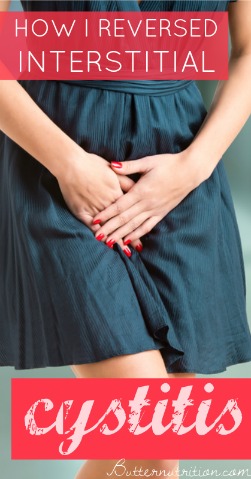
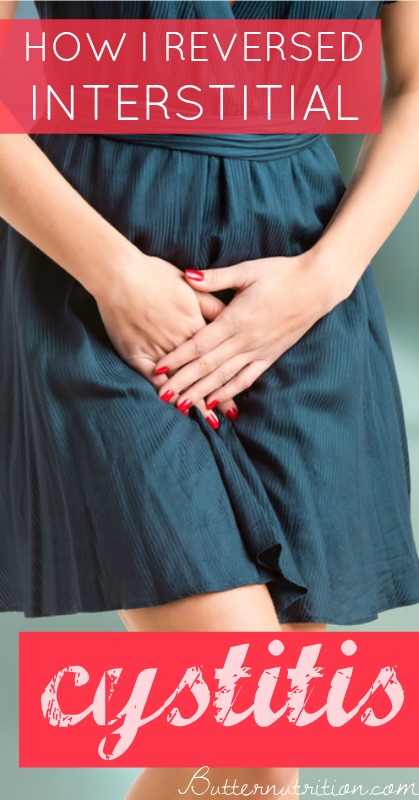
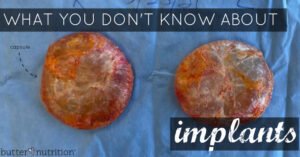
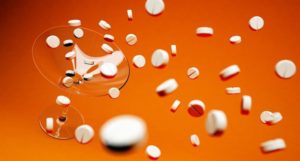
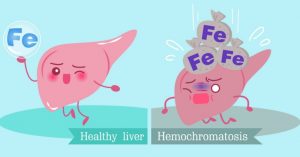

Ann says
Did you use aspirin at any time for the inflammation? Are you taking thyroid, progesterone, pregnenolone? Did you stop using birth control pills?
Catherine says
Hi Ann,
To answer your questions:
-No, aspirin actually flared me.
-I stopped using the pill about 12 years ago.
-I didn't take thyroid, progesterone or pregnenolone. I'm a bigger fan of helping the body balance these things naturally than trying to "fix" with a supplement...
Abundantly,
Catherine
Jess says
Hi Catherine, have been through a very similar experience over the past 5 years, I have gone from a pain of almost 8/9 out of 10 to about a 4 on a bad day. Nutrition is the way forward with IC and i would really recommend anyome suffering to go and see a bladder specialist to help with learning what foods are safe. I no longer drink anything with caffeine in as that is a big trigger for me but apart from some random flare ups I can pretty much eat what i like.
It is really nice to see that you have done a blog like this as I have not come across one before in social media. I do admittedly bury my head in the sand and pretend I don't have this condition but I'm happy I read your blog so thank you.
Deb walker says
Hi Catherine,
How exactly did the hair analysis help you? I have had cold sores my whole life and also have the Epstein Barr Virus, although I' never remember having Mono. I definitely feel that having these viruses has contributed to my having IC. I feel my IC is mild compared to others. I've got my bathroom trips down to 5 times a day by doing bladder retraining and I rarely get up in the night. I don't have pain but mostly have bladder and urethra burning that comes and goes.
Thank you for posting how you were able to heal yourself.
Catherine says
Hi Deb,
Hair analysis gave me more data on my body and what it needed to be brought into better balance. This helped me target my food + supplement plan with more precision. The more my body has what it needs- ie. the raw materials it needs to be healthy, the better I'm going to feel with less inflammation and I believe inflammation plays a huge role in IC 🙂
The healthier the system, the healthier you are!
You can read more about hair analysis here: https://butternutrition.com/what-hair-analysis-testing-reveals/
Abundantly,
Catherine
Isabel says
Are Kegel exercises the bladder training you mentioned???
Tiffany says
Hi Catherine,
Thank you for sharing your story. Do you still follow a strict diet even though you are having supplements? I have slightly different symptoms; doctor thinks its urethritis; the main symptom is called dysuria (pain while urinating) and it has been happening for 4-5 months now. Would you think about doing a hair analysis? I have noticed immediate symptoms when having red wine, so I now avoid that. I also notice symptoms with tomatoes and possibly others but I haven't yet singled out anything else. Thank you for sharing your story which is likely to help many others. 🙂 Tiffany
Catherine says
Hi Tiffany,
I no longer have to follow my own version of the IC diet. I have a few food sensitivities, but other than that I eat whatever I want.
When you have IC I think the more data you have on your body the better so you can target your food and supplements better. So yes, I'm a big fan of hair analysis.
Abundantly,
Catherine
Sindy says
Catherine, thank you for sharing your experience. I have also just gone through 2 course of antibiotics back to back for UTIs and pneumonia and since then my bladder has not been the same. I have to say your story has just further motivate me to change my diet and have hope that this IC symptoms will go away one day. I am optimistic that I will come back and let you know of my success story. Thank you!
Catherine says
You are very welcome. Good luck 🙂
Abundantly,
Catherine
Kerry says
What did you mean by sexual abuse .that may cause ic
Myrna says
I was just diagnosed with IC a few weeks ago. I cry everyday, asking why me. I am in a deep depression with this diagnosis. I feel like i am mourning the life that I had prior to this diagnosis. I am currently on the elimination diet and I am hungry all the time. You say that after your IC diet, you did the hair analysis and took the supplements suggested and that you've been symptom free and can eat most everything. 1. Why is it that you can eat even your trigger foods without flareups? 2. I've heard of Benadryl for IC, did it stop your flareups? 3. Also i have to ask, did you find that intercourse was a trigger for a flareup? 4. Can you have alcohol without a flareup? 5. Sorry one more question, did you experience fatigue with IC? Thank you for any help you can offer. I really hope to hear from you soon.
Myrna says
I was just diagnosed with IC a few weeks ago. I cry everyday, asking why me. I am in a deep depression with this diagnosis. I feel like i am mourning the life that I had prior to this diagnosis. I am currently on the elimination diet and I am hungry all the time. You say that after your IC diet, you did the hair analysis and took the supplements suggested and that you've been symptom free and can eat most everything. 1. Why is it that you can eat even your trigger foods without flareups? 2. I've heard of Benadryl for IC, did it stop your flareups? 3. Also i have to ask, did you find that intercourse was a trigger for a flareup? 4. Can you have alcohol without a flareup? 5. Sorry one more question, did you experience fatigue with IC? Thank you for any help you can offer. I really hope to hear from you soon.
Xenia says
Dear Catherine, how did your diet change after doing the hair analysis? Did you continue without dairy, gluten and high potassium food? Having IC did you have pain all the time or only after eating forbidden food? I have tried different diets but have pain all the time. I am lost with all these diets: IC, low-oxalate, low-potassium, non dairy, non gluten. In the end I feel I cannot eat anything. The healthier I eat the worth it gets. My problem is mainly pain in urethra- all Therme. Thanks for your response
Catherine says
Hi Xenia,
I can eat anything I want now, even gluten 🙂 It did take a while on a limited diet.
Abundantly,
Catherine
Laia says
hi I have e.coli and suffer from post coital cystitis
Mariam says
I was intrigued by this article until I reached the claim that a “low protein” vegan diet worsens the condition. I have had interstitial cystitis for almost a decade. I suffered from chronic pain due to it for years. It wasn’t until I went vegan 8 years ago that my symptoms almost completely subsided. And once I gave up alcohol, they disappeared entirely unless I don’t hydrate well enough or I’m incredibly stressed. I strongly disagree a vegan diet worsens this condition especially considering the high degree of inflammation associated with consuming animal-based products.
Alyssa says
100% agree with you, Mariam. I was diagnosed with IC in Jan. 2015 and went vegan in early 2017. Since going vegan my IC symptoms and flare-ups have greatly decreased in both intensity and number. I also found it really helpful to make water my beverage of choice (although I do have the occasional glass of herbal tea or plant based "milk"). To help manage my symptoms during a flare I recommend D'mannose ( I also take this, with a full glass of water, either right before or after sex as a precaution against a possible UTI). And before I eat a possible food trigger I take Prelief (although I rarely need to since my diet change).
Becky says
Thank you so much for writing this. I have been dealing with IC since my teenage years. I am now 34. I go through flares here and there that can last for weeks to months at a time. Its a devestating condition and I am looking for hope for the future. I should try more of an elimination diet, however it does not seems to appear that diet affects me much? For example I will go for a year without a flare and eat/drink whatever i want.... then bam it just comes and goes out of nowhere. Stress seems to bring it with me. I just started going to a physical therapist and she is helping me relax my pelivic muscles. I am getting married in 2 months and scared because I ve hear so many women complain of pain with sex. Did you find that to be an issue?
Denise says
Hi Catherine,
Thank you for sharing. I am new to the understanding of my issues. It has been years of frustration and no help with docs. I took Benadryl for a temporary reaction to a molar extraction. after a teated infection. I woke with no bladder symptoms! First time in decades.
I went searching and found IC is helped, that's hopeful I have just discovered Benadryl and Claritin products have been found to have some problems. I realize you mentioned using it infrequently and small amounts. Thought I'd best share this. https://www.health.harvard.edu/blog/common-anticholinergic-drugs-like-benadryl-linked-increased-dementia-risk-201501287667
As far as the shared information here, I will pursue thank you so much!
Cher says
Just curious what viral issues you had and how did you take care of them. I’m 45 and was diagnosed almost 3 years ago. I find that I can eat and drink almost anything that I want but have found fro king bone broth daily lowers my pain . I can not take almost any supplements. I tried Bladder rest and it sent me into a flare. Thanks for your article. Oh, and I have unexplained abdominal bloating that stated 2 years before I got IC. Tested for celiac, chrons , SIBO and they they all came back negative.
Amy says
I started having UTI's pretty often since I was a teenager and has continued throughout my life. I was diagnosed with IC in 2003 (my mid 30's) & suffered for many years trying to control with my diet.
Eventually my urologist prescribed a drug that helped quite a bit but my hair started falling out. He then told me to try Desert Harvest Aloe Vera capsules, which I have been taking religiously for around 12 years. I take 2 capsules in the am and pm and can eat and drink whatever I want with very few flare ups. Plus the aloe vera has helped with irritable bowel issues and my nails and hair are healthier. I will never stop taking the aloe vera!
Courtney Kafka says
I haven't been diagnosed yet, but I have had ALL the symptoms you have described over the last 2 months. The last time I had a UTI, it last 5 days and then went away and I haven't had an issue since that was 10 years ago. Right now I have 1 or 2 days where I have no issues, and then suddenly at the end of the day, my bladder is burning and spasming. It feels better when I drink Dandelion root tea, but I have had 3 or 4 nights now where I have woken up to extreme burning and throbbing and been unable to sleep for several hours. Tylenol has helped somewhat when it is that bad. But there is no reason for me to have a bladder infection at this point. So your article has really popped out at me in terms of possible diagnoses. I am hoping to rule out bladder infection shortly here.
Diana Cordero says
Thank you for sharing your story with us!! Is a blessing. I'm having a bad flare since las September 11. I'm feeling better because I eliminated all the acid products from my diet. In my case I'm using Marshmallow Root capsules and they are helping me a lot. I'm praying constantly one day I will no longer have this painful condition. Thank you for your help and God bless you.
K says
Aloe Vera supplements have given me my life back! I take 1 a day, 2 if I’m having a flair up. I can even drink coffee and wine now! I don’t know if It’s actually healing my bladder or just a bandaid but I can’t believe something so simple has made my IC 98% better!
Vicky Lemley says
Which ones are you taking?
aella says
Vegan diets are not "crazy." What a daft thing to say. My IC symptoms were worst of all when I was eating a meat-heavy, low phytochemical diet, and improved when I switched to Joel Fuhrman's nutritarian diet, which btw happens to be a virtually vegan diet.
David says
33 year old male, very healthy and athletic, was always a clean eater. Pandemic lockdown stress and suddenly I have urgency all day all night but nothing to urinate. It’s chronic torture. Last month started following cathrine’s diet and it’s definetly helping. Quercetin has been really helpful, the aloe Vera hasn’t done much. This is very depressing an steals the joy. Also experiencing some ED possibly linked to pelvic floor? My urologist is no help. The internet is been helpful.
Prutha says
Hi. Thanks for sharing your story. It is truly inspiring. I have had a couple of tests done which have come down to be negative. For me what is more bothersome is the constant pelvic pain and pressure. When I touch I press those muscles I feel tenderness and pain from the outside. An you please share some tips on how to reduce the pain?
Elizabeth says
Curious why you think a vegan diet can be a cause/contributor to IC? Eating whole, natural foods is good for the gut! I’ve never heard some reference IC and a vegan diet. I’ve had IC for over twenty years. Recently when I went back to WFPB way of eating my symptoms completely went away. I believe this is because my gut was also getting healed. I’m not saying diet only was the answer, but it was a huge contributor.
Catherine says
The liver relies heavily on high quality protein for detoxification (especially phase 2).
When detoxification fails, it impacts the whole system, especially the gut and bladder axis.
Abundantly,
Catherine
Brenda Fisher says
Catherine,
May God bless you richly. I am so thankful you shared your information. I went on an elimation diet about l2 years ago when I was diagnosed with IC when I was about 53yrs old. I had symptoms since I was in my 20s. I had seen several obgyn docs since I thought the pain was vaginal. Not a one knew to refere me to a urologist. After neck surgury at age 52 due to lack of magneseium ( I had to research that too) I " improved" my diet which caused me one bladder infection after the other. I was finally diagnosed with IC. The elimination diet helped me to find some of my triggers,but I was fustrated with so many conflicting diet lists on IC that I really felt I was guessing half the time. Baking soda and water helped greatly. Changed supplements and added some to help for stomach digestion. Things got better. But lately everything has flaired up again and nothing was working to help the pain. I had figured out to stay away for high C foods. But when I read this site, I had never heard of getting rid of oxalate food for IC. I have reduced my oxalates for the past 3 days and I am already so much better. I just found by researching the computer that the licorice root extract, and fennel and coriander seeds that had helped me at one point for my stomach and bladder pain are all very high in oxalates. Had used these for years along with almonds and dates that had helped stomach digestion, but eventually was now the cause of this recent flair up .
I am so very greatful for your knowlege of IC being reduced by reducing foods with oxalates and/ or vitaimin C. Spread the word to all IC patients and their doctors. So thankful. Now I can make my trip to Nebraska to visit my son who is 15 hrs away. God bless! Brenda
Catherine says
Thanks Brenda for your kind words. I'm so happy you found the information helpful!
Abundantly,
Catherine
Rebecca says
Thank you for this blog!
I am suffering badly from a painful bladder. No UTI.
I'm in menopause and my symptoms started in conjunction with that. Like you were, I'm losing sleep and productivity at work. I think about the pain all the time.
I've just started keeping some notes on foods that might be irritants. I did not know antihistamines could help. I'm eager to tiptoe into that and see if there's any relief to be had. I just ordered some of the D'mannose, which I had never heard of. I do hope it helps some.
I'll be rereading this blog many times while I try to address my own symptoms. Thank you for such a thoroughly detailed explanation of your journey. You give me hope.
Catherine says
Thanks Rebecca for the kind words. Wishing you the best on your journey!
Abundantly,
Catherine
Tristan Christophilis says
Hi Catherine! Love your article. Your life pretty much mirrors my life. My functional doctor and I have been on a mission to cure me for the last 3 years. Things have definitely gotten better but I’m still getting flares about twice a year. Just did the “poop” culture and also did genetic testing. We are reviewing it next week! Question for you: when I flare it lasts for 10-14 days!! Ugh! (In one now!)How do you get it under control in one day?